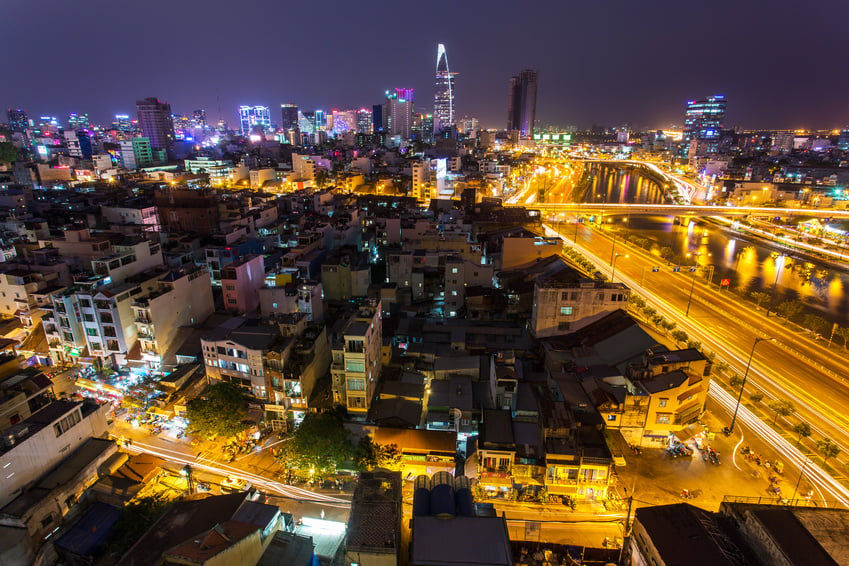The National Assembly of Vietnam, at its recent 10th meeting, has adopted the new Law on Environmental Protection following the proposal of the Ministry of Natural Resources and Environment of Vietnam. The New Law represents the most significant modernization of the environmental law regime of Vietnam since the first law on environmental protection in 1993. It will take effect on 1 January 2022 and will replace the current 2014 Law on Environmental Protection.
The National Assembly of Vietnam, at its recent 10th meeting, has adopted the new Law on Environmental Protection (“New Law”) following the proposal of the Ministry of Natural Resources and Environment of Vietnam (MONRE).The New Law represents the most significant modernization of the environmental law regime of Vietnam since the first law on environmental protection in 1993. It will take effect on 1 January 2022 and will replace the current 2014 Law on Environmental Protection (“Current Law”).
The Ministry of Industry and Trade of Vietnam (MOIT) recently released a new draft circular regarding the implementation of the pilot program for direct power purchase agreement (DPPA) mechanisms between renewable energy developers/power generation companies and private power buyers/consumers (“New Draft DPPA Circular”).1
The Ministry of Industry and Trade of Vietnam (MOIT) recently issued Circular No. 57/20201 replacing Circular No. 56/2014,2 on the method of determining tariffs and PPA negotiation and appraisal procedures for conventional power projects (including LNG-to-power, hydropower and other thermal power). Circular No. 57 generally retains the key principles on tariff determination and negotiation of the PPA draft, and provides for, among other things, updates to the principles and method of determining tariffs and the re-introduction of re-negotiation on tariffs and the PPA based on the finalized investment capital of the project. Circular No. 57 aims to provide for a more streamlined regulation with regard to the negotiation and implementation of tariff and the PPA, which is one of the key concerns of investors/developers of conventional power projects.
On 22 February 2021, the Ministry of Industry and Trade of Vietnam (MOIT) released the draft proposal for the national power development plan for the period of 2021-2030, with a vision to 2045 (“Draft PDP8”) for public comments. This is the third version of the draft, which the MOIT prepared and updated in February 2021. The draft proposal includes an 843-page main explanatory report, with an addition of 174 pages of appendices.
Under the Master Planning Law and the notice from the MOIT, the draft proposal of PDP8 has been made available for public comments for a period of 30 days from the MOIT’s notice.
We set out below the key highlights of the draft PDP8 proposal.
The Vietnamese government recently issued Decree No. 05/2021/ND-CP (“Decree No. 05”)1 on the management and operation of airports and airfields in Vietnam, replacing Decree No. 102/2015/ND-CP (“Decree No. 102”).2 The new decree comes into effect on 10 March 2021, and provides for, among other things, new regulations regarding the investment and operation of airport and airfield projects in Vietnam.
In the context of the global shift from government ownership and operation to private participation in the airport and aviation infrastructure sector, and responding to increasing calls to promote private sector investments in airports in Vietnam, Decree No. 05 provides certain foundations to facilitate new opportunities for private investment in airports and airfields in Vietnam.
However, there are certain legal issues that will need to be considered in relation to airport concessions, depending on whether the legal and contractual frameworks involve public-private partnership (PPP) or private investment structures on a project-by-project basis.
On 22 February 2021, the Ministry of Industry and Trade of Vietnam (MOIT) released the draft proposal for the national power development plan for the period of 2021-2030, with a vision to 2045 (“Draft PDP8”) for public comments. This is the third version of the draft, which the MOIT prepared and updated in February 2021. The draft proposal includes an 843-page main explanatory report, with an addition of 174 pages of appendices.
Under the Master Planning Law and the notice from the MOIT, the draft proposal of PDP8 has been made available for public comments for a period of 30 days from the MOIT’s notice.
We set out below the key highlights of the draft PDP8 proposal.
The Vietnamese government recently issued Decree No. 05/2021/ND-CP (“Decree No. 05”)1 on the management and operation of airports and airfields in Vietnam, replacing Decree No. 102/2015/ND-CP (“Decree No. 102”).2 The new decree comes into effect on 10 March 2021, and provides for, among other things, new regulations regarding the investment and operation of airport and airfield projects in Vietnam.
In the context of the global shift from government ownership and operation to private participation in the airport and aviation infrastructure sector, and responding to increasing calls to promote private sector investments in airports in Vietnam, Decree No. 05 provides certain foundations to facilitate new opportunities for private investment in airports and airfields in Vietnam.
However, there are certain legal issues that will need to be considered in relation to airport concessions, depending on whether the legal and contractual frameworks involve public-private partnership (PPP) or private investment structures on a project-by-project basis.
The government of Vietnam recently issued Resolution No. 140/NQ-CP1 promulgating the government’s action program (“Government’s Action Program”) to implement Resolution No. 55-NQ/TW of the Politburo on the orientation of the National Energy Development Strategy to 2030, with a vision to 2045 (“Resolution No. 55”). The Government’s Action Program highlights, among others, the specific tasks and responsibilities of state management agencies of Vietnam to implement the general and specific objectives of the energy development as earlier set forth in Resolution No. 55.
Resolution No. 140 also sets out a list of key specific laws, regulations, programs, projects and master plans required to be prepared and issued in the next 10 years for implementing the Government’s Auction Program with specific agenda items for 2021.
On 21 January 2021, the Electricity and Renewable Energy Authority of Vietnam (EREA) submitted Report No. 20/BC-DL to the Deputy Minister of Industry and Trade in charge. The report requests the Ministry of Industry and Trade (MOIT)’s internal approval of the draft of the Prime Minister’s decision on the selection of investors for grid-connected solar power projects in Vietnam (“Draft Decision”).
This Draft Decision would apply the selection mechanism on a long-term basis. Bidding rounds will be conducted based on a so-called Renewable Energy Development Plan formulated by the MOIT for each five-year period. A more specific plan will be circulated on a biannual basis.






